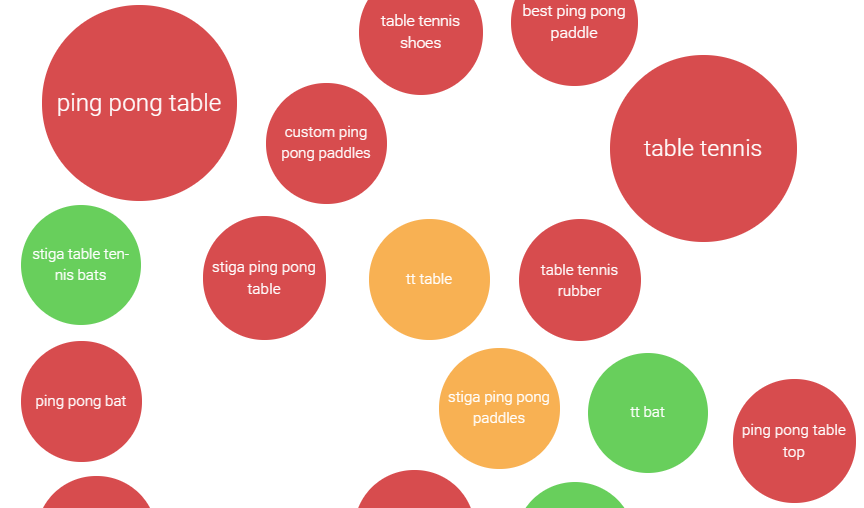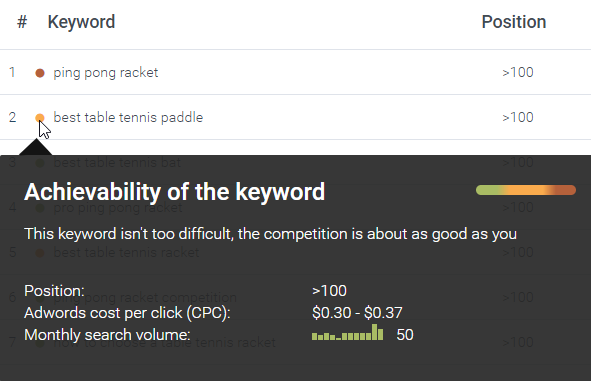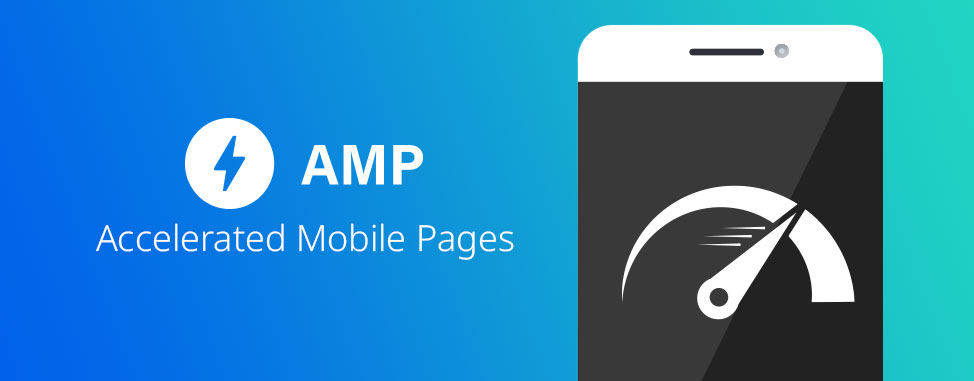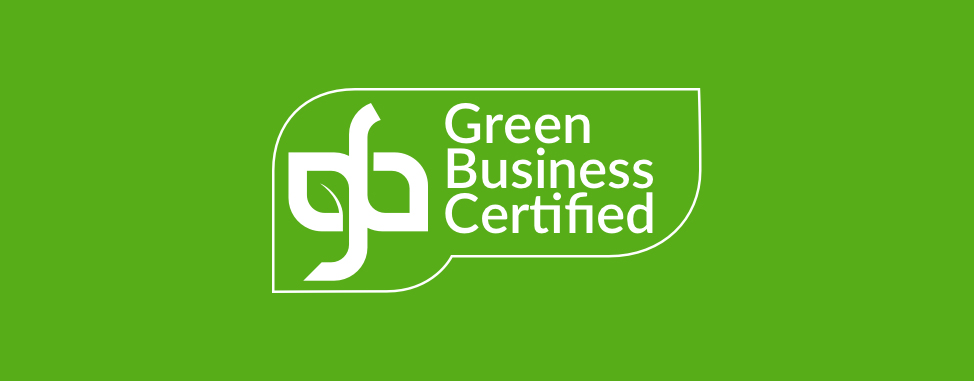
Beginner's Guide to SEO: Keyword Research
In our continuing series Beginner’s Guide to Search Engine Optimization (SEO) we started by introducing the 3 types of SEO that can improve a website’s search engine rankings. Before diving deeper into those methods, let's take a closer look at one of the foundations of SEO: Keyword research.
What are keywords and why are they important for SEO?
On the web, keywords are words or phrases that identify the main topics of a web page. For website visitors, keywords are what they type (or speak) into a search engine like Google. For search engines, keywords are used to group and rank websites that would be most pertinent to people searching for specific content online.
For example, if you are looking for a custom sink installation service, Google will attempt to list the most pertinent pages that contain those specific words (also called keywords or keyphrases).
Since SEO aims to improve your web page’s ranking in the search results, choosing the right keywords is a crucial first step. While there are many other factors which affect your website’s rankings, choosing the wrong keywords is a sure way of losing potential traffic and business, so try to get it right from the start!
But how do you make sure you’ve picked the right keywords for your web page? Let’s read on and find out!
How to pick the best keywords with keyword research
Finding the best keywords involves a series of steps that should be completed in a specific order so that you get the best results. Some steps will create new keywords ideas while others will help narrow your keyword options and eliminate the ones that would not be helpful to you.
WHC has prepared a keywords research spreadsheet template designed to help you organize and track your keyword research. Download and modify it, or copy it into your own Google sheets and follow along.
The following steps will be covered:
- Identify goals and topic
- Brainstorm initial keywords
- Consider longer keyword phrases with modifiers
- Expand your keywords list with suggested keyword tools
- What are people actually searching for? Identify search volumes
- Identify low competition keywords: Best keywords to target for traffic
- Narrow down the keywords list
- Best keywords for goals
- Scout out competitors
- Creating a final keyword list
Let’s get started!
Identify goals and topic
Before starting the keyword research process it’s important to establish a goal. What do you want your web page to accomplish?
Here are some examples:
- Generate sales of a specific product
- Generate traffic
- Generate leads (collect emails/phones)
- Increase awareness or brand recognition
For starters, write down your page’s main goal. You can have multiple goals but ideally each separate web page you create should target a single primary goal.
Later on in this article we’ll return to goals and see how they’ll impact our final choice of keywords, but for now focus on identifying your goals before you start researching keywords. Failure to do so may mean you’re working backwards and adapting your goals based on your keywords research, which could ultimately prove counter-productive.
You will also want to define a page topic. Your topic should be the general idea of the page you are creating. If you focus on your home page, then the topic may be quite general as it will be the basic idea of your whole website. Other pages should be more specific, such as a particular service, product, piece of news or subject.
For instance, if you have a website that provides information about ping pong equipment, then that would be the topic of your home page. Other pages would then deal with specific pieces of ping pong equipment and maybe related news. It’s important to have a topic for any web page you create as it will help you focus on which keywords to consider and which to disregard.
Add your goal(s) and topic within the Intro tab of your keywords research spreadsheet.
Now that we’ve set a goal, let’s move on to the next step: Brainstorming.
Brainstorm initial keywords
Start by trying to answer one simple question:
What terms would you search for, if trying to find your page online?
Since different people think differently, It might also help to include your friends or colleagues at this point and to involve a whiteboard to maximize creativity.
Let’s say you operate a ping pong website and want to create a page on ping pong paddles. Take a few minutes to brainstorm 3 to 10 keywords.
Examples:
- Ping pong paddles
- Ping pong accessories
- Ping pong rackets
After your initial brainstorm, think about synonyms. Your clients or visitors may use different words while still searching for the same topic. Depending on how many synonyms you come up with, your list may quickly double.
Examples:
- Table tennis paddles
- Table tennis accessories
- Table tennis rackets
Place initial brainstorming and synonym ideas under the Initial brainstorming and Synonyms sections within the Brainstorming tab of your keywords research spreadsheet.
Expand your keywords list with keyword suggestions tools
Once you’ve brainstormed a comprehensive list of possible keywords, let’s use online tools to recommend new keywords you’ve potentially overlooked.
Here are 4 tools we recommend:
WordTracker - Identify the search volume, level of competition, and intent to purchase of each keyword, available by geographic region. Try it for free (plus a 25% discount on premium editions).
rankingCoach - Uncover new keywords with this user-friendly tool that guides you through the process. Easily sort them by popularity and competitiveness and let the tool find your most likely competition. Then put those keywords to work for you!
Ubersuggest - A completely free tool that will provide a wealth of information on keywords, related keywords and how difficult it can be to rank for them on search engines.
Google Ads Keyword Planner - If you have a Google Ads account, then you have access to one of the best known keyword tools on the market today. A powerful tool, but you will need to run a Google Ads campaign to access its full potential.
Type the keywords on your brainstormed list into these tools to start gathering data. Review the suggested keywords and write down any that seem like suitable matches for your topic and that you may have overlooked. For instance, rankingCoach suggested table tennis bat as a common search term which I was unaware of when researching ping pong paddles.
After you have found a few new, related keywords and marked them down, you’ll move on to adding modifiers. These modifiers will help you discover keyword opportunities that your initial brainstorming and tool aided research may have missed.
Add your brainstormed keywords to your chosen tool and look at the suggestions. Enter suitable suggestions into the synonym/related section, within the Brainstorming tab of your keywords research spreadsheet.
Consider longer keyword phrases with modifiers
Keywords are often divided into two categories: Short-tail and long-tail. Short-tail keywords are composed of 1 to 3 words and long-tail keywords (sometimes referred to as keyphrases) are made up of 4 or more words. While shorter keywords may generate more search volume and exposure, longer keywords can actually provide higher quality visitors with less competition, so they shouldn’t be ignored (more on search volumes and competition later).
Let’s now expand on our brainstormed keywords list by adding modifiers. These are words that are generally added to the start or the end of your keywords. We’ll focus on 4 specific types of modifiers: quality, location, time and question.
Quality modifiers
Qualities could be something general, like best, worst, cheapest, or most expensive. They could also be specific to your topic like ‘ping pong paddle for defensive players’. Think about what qualities people may search for in connection with your current list and expand your keywords list with them.
Examples:
- Best ping pong paddles
- Most recommended ping pong paddles
- Table tennis paddles for control
Location modifiers
Search engines understand that certain searches, like order pizza, are localized. If the topic of your page is targeting a specific area (which it almost always should), then add that modifier to your keyword research list. For instance, best ping pong paddles in Montreal tells search engines that you’re targeting a Montreal audience. Take 2 to 5 of the keywords you have already brainstormed and add a location if it applies.
Examples:
- Ping pong paddles in Montreal
- Mississauga table tennis rackets
Time modifiers
Some web pages are time sensitive and adding a time modifier, like the current calendar year, a particular holiday or a current event in progress now, can help increase interest. For instance, best ping pong paddles of 2019 may get more interest than best ping pong paddles, because the article appears more current if it’s been updated the same year. If a time modifier applies to the topic of your page, write down 2 to 5 of your existing keywords with an appropriate time modifier.
Examples:
- Best ping pong paddles (2019 update)
- Black Friday ping pong paddle sale!
- March madness ping pong tournament event
Question modifiers
Thanks to smartphones, more people are using voice searches and more searchers are phrasing their searches as questions. For instance, instead of searching for best ping pong paddles, some will instead search for what are the best ping pong paddles. Modifiers such as what/how/why/when can actually help you find more targeted keywords for your audience. If you need help thinking of questions, a useful tool called answer the public can provide you with suggestions on questions related to your keywords. Take 3 to 10 of your keywords and add them to your list as questions.
Place quality, location, time and question modifiers under the designated sections of the same name within the Brainstorming tab of your keywords research spreadsheet.
What are people actually searching for? Identify search volumes
Now that we’ve become a little familiar with online tools that provide keyword suggestions, let's use them to also identify search volume. A keyword's search volume is the average number of searches that were made for that keyword during a specific time period, generally one month. If a keyword has a search volume of 500, then the first page results of that keyword will be seen, on average, 500 times per month. Choosing a keyword with a very low search volume limits your web page’s online exposure, so try to avoid them unless you’re in a very niche market.
With rankingCoach, keyword suggestions are provided in bubbles of varying sizes. The larger the bubble, the higher the search volume.

From the image above, table tennis has the highest search volume. However, that does not make it the best keyword to be targeting for our web page! Keyword competition and user intent both need to be considered when selecting the final keywords.
Specific search volume data will be found on the next page.

Here, rankingCoach (like other keyword tools) displays the average amount of searches a keyword gets per month. The higher the number, the more popular the term is.
Note the search volume next to each keyword in the Search volume column within the Brainstorming tab of your keywords research spreadsheet.
Identify low competition keywords: Best keywords to target for traffic
While high search volumes are useful, another important metric is how competitive the keywords are. This will indicate how hard it may be to rank well for a particular keyword by showing you how many others are competing for the same keyword. Finding a keyword with thousands of searches per month is good, but if you only show up on the tenth page of Google due to fierce competition, it won’t help much.
Competition information will often be shown in broad terms. For example, rankingCoach will tell you if the competition is low, medium or high by showing keywords in green, yellow or red bubbles (respectively).
Regardless of how it is formatted, add search volume and level of competition next to each keyword on your list.
Select high, medium or low level of competition next to their respective keywords under the Level of Competition column within the Brainstorming tab of your keywords research spreadsheet.
Narrow down the keywords list
Now armed with search volume and competition information, you can start ranking your keywords. Generally, what you’re looking for are keywords that have a high search volume but low competition. This general rule may not be the best depending on your goals, but if you’re focusing on getting more traffic to your site, it applies. We will see how having different goals will change this general rule later.
Unfortunately, there may not always be a clear winner between keywords. When this happens, consider your topic, your goal, and make the best choice based on the data you have and your gut instinct.
For example, rankingCoach informs me that ping pong paddles has about 1000 monthly searches but it will be difficult to rank for. Best table tennis bat will be easy to rank for but only has 10 monthly searches. Best table tennis paddle has 50 monthly searches and is medium competition and it also goes well with my topic of information on ping pong paddles. So I will choose that over the other two.
But the research is not over. Go through your list and highlight 2 to 5 keywords that have high search volume, low to medium competition and align with your proposed topic. We will then consider these keywords against two possible goals.
Go through your keyword list within the Brainstorming tab of your keywords research spreadsheet and look for ones that best suit your topic (around 6 to 12). Highlight them. Then, out of those, indicate the ones that have high search volume combines with medium to low competition by making them bold.
Best keywords for goals
Before we attempt to make a finalized list of our keywords we need to look back at goals and why we would start our research with them in mind. Above we mentioned two goals, getting more traffic to the web page and selling more products. Let’s see how they influence your decision.
Getting more traffic: You want more people to see your site so place more emphasis on search volume (more searches per month). Competition is still a factor but if you have to choose between medium competition with much higher search volume and low competition with less search volume, then go with the higher search volume. This strategy focuses on having more people come across your web page when searching to get more visits.
Increasing sales: It's not a matter of having lots of people on your site so much as having the right people on your site, i.e. those who want to make a purchase. In this case, it's better to find low competition keywords that may have a lower search volume but have the right intent. For instance, table tennis racket will be used by people who are looking to buy but also by some looking for information. However, buy ping pong paddles will be used by people ready to make a purchase. Even though there are only a few searches a month, the low competition and probable searcher intent to make a purchase meets this goal and make this term a likely candidate. Of course, adding buy at the beginning of key phrase really narrows down intent, but these tend to be very competitive.
If you’re having a hard time figuring out the general intent behind certain keywords, then type them into a search and look at the results. If they show mostly information websites, then the majority of searcher intent is probably not to buy, and vice versa. For instance, custom ping pong paddles displays results consisting of websites selling items, hinting that the average intent is to buy one rather than to find information on the subject.
Go through you keyword list within the Brainstorming tab of your keywords research spreadsheet and see which ones align with your goals. Start on your narrowed down list but also look at those that didn't make the cut as your goal may change their perceived value. Highlight ‘goal’ keywords in a different colour.
Scout out competitors
Another way to gather insight is to inspect the competition. Tools like Google Keyword Planner and rankingCoach provide a competitor analysis features that can help identify keywords they’re targeting and could inspire you for your own choices.
Google’s Keyword Planner, for instance, will allow to see a breakdown of the keywords on a web page by adding the web address to the research tool. Since you already have a list of promising keywords, finding competitors should be easy. Type 1 to 3 of your highlighted keywords into a search engine and check out who is on the first page. These are the web addresses you can copy and paste into the keyword tool to see what keywords they use and which ones you might have missed.
RankingCoach, in comparison, does the search for you and will suggest competitor websites after analysing your specified location and chosen keywords. It will not provide suggested keywords based on competitors, but it does track competitors and their rankings on your selected keywords so you can compare your progress over time.

Write down any new, relevant keywords along with search volume and competition data and compare them to your existing list. Perhaps you’ll discover a new set of keywords to research so don’t be afraid to take any new keywords and do additional research with synonyms or modifiers.
It’s also possible that you won’t find any new keyword, which confirms you’ve done a thorough job already (so pat yourself on the back!). Regardless, it’s always good to know who your competitors are and understanding what keywords they’re targeting.
Once you have done this final run-through, highlight 2 to 5 keywords that best suit your goals and page topic.
Within the Competition tab of your keywords research spreadsheet, add the competitor URL next to competitor #. Add any new, relevant Keywords with the relevant Search volume and Level of competition under the appropriate column.
Creating a final keyword list
You’ve got a goal in mind, a list full of keywords, the relevant data, and some competition research. Now you’re going to pick your primary keywords and a handful of secondary ones from the keywords you’ve highlighted.
The primary keyword is the main one you want to rank for in search engines. It aligns with the page topic as well as searcher intent. Your secondary keywords (about 2-5 keywords usually) will complement the primary keywords in a supporting role. They can have high competitiveness as long as they reinforce the page topic and searcher intent. This is because search engines look for related keywords to reinforce their understanding of the page and primary keyword.
Your primary keyword will be one that matches your goal and has a high search volume (relative to other keywords) with low to medium competition. If you followed our spreadsheet methodology then it should be one that is twice highlighted and bold. Once you have chosen your primary, look at the other keywords you selected during the narrowing down steps. These are candidates for secondary keywords. From these you will select the ones that match your goal and naturally compliment (are easy to work into the content of the page you will create) your topic and primary keyword.
Here’s a final result of my research work in action:

I’ve selected best table tennis racket as my primary keyword along with 3 supporting secondary keywords that I’ll try to incorporate into my final web page.
Within the Final Keywords tab of your keywords research spreadsheet, note your primary and secondary keywords along with the Search volume and Level of competition data into the appropriate column.
Sweet! I have my keywords list. What now?
Once you’ve identified your primary and secondary keywords, you’ve finished your initial research. Congratulations!
But remember: Each web page can contain its own, unique keywords. Keyword research doesn’t end with finding primary and secondary keywords for a single page. It should continue so that each page, or at least the most important ones, of your website has its own unique topic and keywords, maximizing the potential of your site.
With time, keyword trends can also change and you will surely find that some keyword choices you’ve made are more effective than others. Don’t be afraid to experiment and keep tweaking your content based on the results you’re seeing. Search Engine Optimization and keyword research is an ongoing marathon, not a short sprint!
Now that you know which keywords to target, where should you put them for the best results? Find this answer and more in our follow-up article: Beginner's Guide to On-Page SEO.

Also on the WHC Blog

Accelerated Mobile Pages: Built for Speed
In 2019, publishing fast loading web pages designed for mobile devices is more important than ever. Google has spearheaded the Accelerated Mobile Pages (AMP) project to help with this very issue. According to a study done...
Read full article
WHC Joins the Green Business Bureau to Help Create a More Sustainable Tomorrow
Web Hosting Canada is proud to have partnered with the Green Business Bureau in its efforts to help create a more sustainable tomorrow. The original press release is available on the GBB Blog. Every small business...
Read full article





